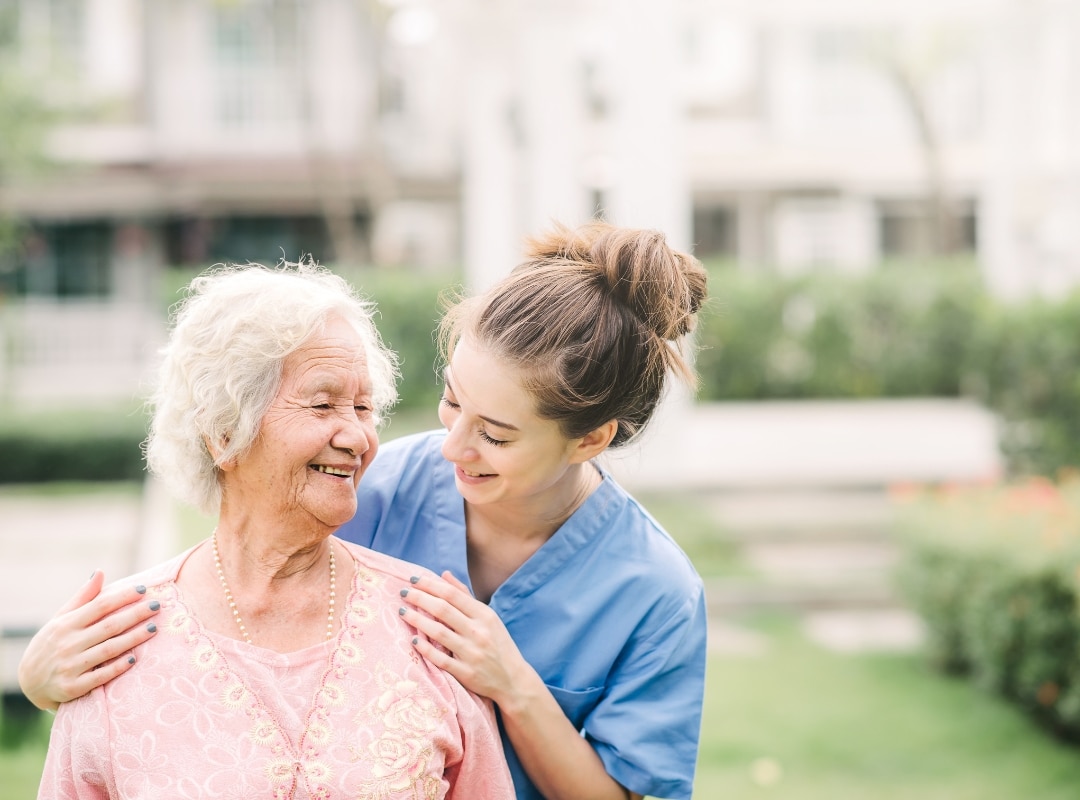Why a Geriatric Package Is Essential for Senior Health
You may wonder why a geriatric package from Westmont of Riverside is essential for senior well-being. The answer lies in its ability to provide a holistic approach that addresses various aspects of seniors’ health and happiness. From specialized care plans to social activities and mental stimulation, a geriatric package from Westmont of Riverside offers an all-encompassing solution to support seniors in their unique journey through aging. But how exactly do these tailored packages from Westmont of Riverside contribute to the overall well-being of seniors? Let’s explore the key components that make them indispensable for senior health and happiness.
Addressing Specific Health Concerns
To maintain peak well-being in our senior population, addressing specific health concerns is vital. Dietary modifications play an essential role in ensuring that seniors receive the necessary nutrients for ideal health. Encouraging a well-balanced diet rich in fruits, vegetables, lean proteins, and whole grains can help manage conditions such as diabetes, high blood pressure, and heart disease. Furthermore, including fiber-rich foods for elderly health in their diet can aid in digestion, prevent constipation, and support beneficial gut bacteria, contributing to overall well-being.
Additionally, incorporating mobility aids can greatly improve the quality of life for seniors with limited mobility. Simple tools like grab bars in the bathroom, walkers, or motorized scooters can enhance independence and safety, allowing seniors to move around with ease and confidence.
When implementing dietary modifications, it’s important to take into account individual preferences and dietary restrictions while still focusing on promoting overall health. Similarly, when introducing mobility aids, ensuring proper training and support is essential to help seniors adapt and utilize these tools effectively. By addressing these specific health concerns with compassion and attention to detail, we can truly make a difference in the well-being of our senior population.
Promoting Social Engagement and Connections
Engaging in social activities and fostering connections with others can greatly enhance your well-being as a senior. These interactions not only provide companionship and support but also help reduce the risks of isolation and loneliness. Prioritizing social engagement in your daily routine can lead to a more fulfilling and enriched life during your golden years. Additionally, participating in tailored activities for varied interests ensures that you find meaningful connections and enjoy a diverse range of social interactions.
Social Activities Boost Well-Being
How can you enhance the quality of life for seniors in your care? Social activities play a significant role in boosting well-being among seniors. Organizing community events and group outings can provide them with opportunities to socialize, engage with others, and create lasting memories. Encouraging participation in these activities can help combat feelings of loneliness and isolation that are common among the elderly. Community events such as potlucks, game nights, or local festivals allow seniors to connect with their peers and build a sense of belonging. These gatherings provide a platform for sharing stories, laughter, and experiences, fostering a supportive social network. Additionally, group outings to parks, museums, or shopping centers offer seniors a change of scenery and the chance to explore new places with friends. Participating in these activities not only promotes social connections but also boosts physical and mental well-being among older adults.
Connections Reduce Isolation Risks
When looking to diminish the risks of isolation among seniors, fostering social engagement and connections is essential. Loneliness prevention is an integral aspect of senior well-being, and one of the most effective ways to combat this is through community engagement. By encouraging seniors to participate in social activities, visit community centers, or join clubs and groups, the sense of isolation can be greatly reduced. Building connections with others not only provides emotional support but also contributes to mental and physical health. Regular social interactions can boost mood, reduce stress, and even improve cognitive function. Engaging in carefully curated social activities with peers and caregivers can further enhance the well-being of seniors. Whether through shared meals, group outings, or simply spending time with friends and family, these connections play a crucial role in seniors’ overall well-being.
Improving Quality of Life and Independence
To enhance the quality of life and promote independence among seniors, it is essential to focus on personalized care plans that cater to their unique needs and preferences. Providing individualized attention and support can greatly improve their overall well-being and sense of autonomy. By tailoring care plans to address specific requirements, seniors can maintain a higher level of independence and lead more fulfilling lives. Additionally, offering various options for staying active and healthy can contribute to their overall well-being and independence. Here is a table highlighting some key aspects of personalized care and independence support:
| Personalized Care | Independence Support |
| Customized health assessments | Assistance with daily activities |
| Specialized dietary plans | Mobility aids and equipment |
| Regular medication reviews | Home modifications for safety |
| Social engagement activities | Transportation services |
| Emotional support services | Personalized exercise programs |

Enhancing Emotional Well-Being
When addressing the emotional well-being of seniors, remember the significance of maintaining social connections to uplift spirits and provide a sense of belonging. These connections not only enhance mental health but also offer a support system during challenging times. Engaging in community activities or seeking virtual companionship can greatly contribute to overall emotional wellness and combat feelings of loneliness, promoting a sense of belonging and well-being in supportive housing communities.
Social Connections Importance
Enhancing emotional well-being in seniors is inherently linked to the importance of social connections. Community involvement and maintaining strong family relationships play a vital role in fostering a sense of belonging and support for older adults.
Seniors often find great joy and fulfillment in engaging with their local community. Whether through volunteering, participating in group activities, or attending community events, these interactions provide opportunities for socialization and meaningful connections. Feeling connected to a larger community can combat feelings of isolation and loneliness that are common among older individuals.
Additionally, maintaining close ties with family members is essential for seniors’ emotional well-being. Regular communication, visits, and shared experiences with loved ones can bring comfort, joy, and a sense of security.
Family relationships offer a support system that’s essential in times of need and contributes significantly to a senior’s overall quality of life.
Mental Health Benefits
Feeling emotionally supported and mentally balanced is vital for seniors in maintaining a fulfilling and healthy life. As we age, our mental health becomes just as important as physical health. Here are three ways a geriatric package can enhance emotional well-being for seniors:
- Emotional Support: Providing a nurturing environment where seniors feel heard and valued can significantly influence their emotional well-being. Simple gestures like active listening, offering comfort, and empathetic conversations can make a world of difference.
- Mental Stimulation: Engaging seniors in activities that challenge their minds, such as puzzles, games, or educational programs, can help keep their cognitive abilities sharp. Mental stimulation not only boosts mood but also fosters a sense of accomplishment and purpose.
- Therapeutic Interventions: Incorporating therapy sessions or support groups into the geriatric package can offer seniors a safe space to express their feelings, cope with stress, and learn valuable coping mechanisms. These interventions promote mental well-being and provide tools for managing emotions effectively.
Coping Strategies for Loneliness
As we focus on the well-being of seniors, particularly in addressing emotional needs, it’s essential to recognize the impact that loneliness can have on their overall mental health. Coping with loneliness is pivotal for enhancing emotional well-being.
Encouraging seniors to engage with community resources can provide a sense of belonging and connection. Local senior centers, religious organizations, or volunteer groups offer opportunities for social interactions and meaningful relationships.
In today’s digital age, technology solutions can also play a vital role in combating loneliness. Encouraging seniors to use social media platforms to connect with family and friends, participate in online communities, or join virtual events can help alleviate feelings of isolation.
Additionally, video calls and messaging apps enable real-time communication, bridging the gap between physical distances.
Providing Tailored Care and Support
Tailored care and support are essential components in promoting the well-being of seniors. When it comes to providing personalized care and individualized support, every senior deserves attention to detail and empathy. Here are three ways to guarantee seniors receive the personalized care they need:
- Customized Care Plans: Work closely with each senior to develop a care plan that suits their unique needs and preferences. Consider factors such as medical conditions, dietary requirements, and social preferences to create a plan that caters specifically to them.
- Regular Check-Ins: Schedule regular check-ins to assess the effectiveness of the care plan and make any necessary adjustments. This not only guarantees that the senior’s needs are being met but also shows them that their well-being is a top priority.
- Encouraging Independence: While providing support is essential, it’s equally important to encourage independence where possible. Empower seniors to maintain their autonomy and make decisions that contribute to their overall well-being and happiness.
Supporting Cognitive Function and Mental Health
To enhance the well-being of seniors, it’s important to focus on supporting their cognitive function and mental health. Memory support plays a pivotal role in maintaining independence and quality of life for older adults. Encouraging activities that stimulate the brain, such as puzzles, reading, or learning new skills, can help preserve cognitive abilities. Additionally, creating a structured routine and utilizing memory aids like calendars or reminders can assist in day-to-day functioning.
Emotional wellness is equally crucial for seniors’ overall health. Providing opportunities for social interaction, whether through group activities or regular visits with loved ones, can combat feelings of isolation and depression. Active listening, empathy, and validation of their emotions are essential in fostering a sense of connection and belonging.
Incorporating cognitive exercises and emotional support into daily care routines can significantly contribute to seniors’ well-being. By prioritizing memory support and emotional wellness, caregivers can help older adults lead fulfilling and meaningful lives.
To sum up, ensuring seniors have access to a geriatric package from Westmont of Riverside (Phone: 951-697-2100) is vital for their overall well-being. Did you know that studies have shown that seniors who participate in social activities and receive personalized care plans have a 25% lower risk of developing depression? By addressing specific health concerns, promoting social engagement, and providing tailored support, a geriatric package can greatly enhance the quality of life for seniors as they age. Remember, their well-being matters.
























